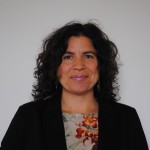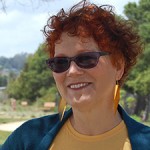The Critical Sustainabilities project originated in 2012–2013 as a series of workshops attended by students and faculty at UC Santa Cruz, UC Berkeley, UC Davis, and the University of San Francisco, and supported by the University of California Humanities Research Institute (UCHRI). It continues today, in expanded form, through this website. Our participants come from multiple fields—including sociology, anthropology, art, architecture and design, history, environmental studies, urban planning, and geography. We are engaged in a variety of extra-curricular activities—including urban gardening, documentary film and photography, community organizing, and policy consulting. Across these domains, we have encountered divergent uses of “sustainability,” and wish to take a critical approach to its study, in hopes this might inform future sustainability practice, planning, and policy.
Where We Focus
We began our examination with our own famously green and “ecotopian” Northern California region—home of eco-city builders, locavore cuisine, and Whole Earth Catalogue-inspired innovators. It is here, many imagine, that sustainable futures have been most powerfully dreamt up, and are actually being lived to their fullest today. We sought to show that even here—perhaps especially here—differences in and conflicts over the uses of sustainability abound, and can benefit from critical analysis.
Moving forward, we hope our historically and spatially grounded approach to situating sustainability can be combined with and informed by other similar efforts in the rest of California and the world. We seek to explore how imagined binaries between a utopian north and dystopian south, as well as the exclusion of the central part of the state, occlude complex realities and important examples of sustainability. We will examine how ideas about sustainability have traveled from California to other places, and from other places to California. And we will seek to understand how sustainabilities are situated differently in other regions throughout the Global North and South.
What We Mean by “Critical”
We use “critical” in both of its senses: as a response to a moment of potential crisis, and as a method of critique.
In the first case, we are motivated by a sense of the critical urgency of our current moment for the fate of communities and ecosystems facing the interconnected challenges of global climate change, planetary urbanization, and social and economic inequality. The pursuit of sustainability is increasingly posed as the ultimate response or solution to these issues. We are inspired by this growing, global consensus, and massive scale of creative energy devoted to building towards a sustainable future.
Second, and in relation to the first, we argue that critical thinking about our use of the term “sustainability,” and the form of sustainability we wish to pursue, is vital. We wish to ask where do different forms of sustainability come from, who and what do these forms include or exclude, and what might then be their varied impacts and unintended consequences? We believe such ongoing critique is a necessary component of any movement towards sustainability, and necessary grounding for any truly sustainable practice.
Thus, we use critical methods to make sense of sustainability discourse, taking seriously how questions of power, difference, place, and history shape our uses of the concept. We trace the epistemologies of sustainability that underlie these uses, analyze the keywords that constitute sustainability as a discourse, and map the actual sites in and through which different sustainabilities are actively developed. Through creative projects, we feature artistic, activist and scholarly explorations of the real-life debates and sense of possibility that shape sustainability, historically and in the present day.
Participants
- Miriam Greenberg, Director
- Eric Porter, Advisor
- Kristin Miller, Web Editor
- Julie Rogge, Web Designer
- Michelle Aguilar
- Alison Alkon
- Trisha Barua
- Rachel Brahinsky
- Lindsey Dillon
- Michelle K. Glowa
- Jen Gray-O’Connor
- Julie Guthman
- Adonia Lugo
- Padma Maitland
- Tracy Perkins
- Mary Beth Pudup
- Elsa Ramos
- Sabrina Richard
- Kirsten Rudestam
- Simon Sadler
- Susie Smith
- Julie Sze
- Lewis Watts
- Chelsea Wills
- May Ee Wong

























